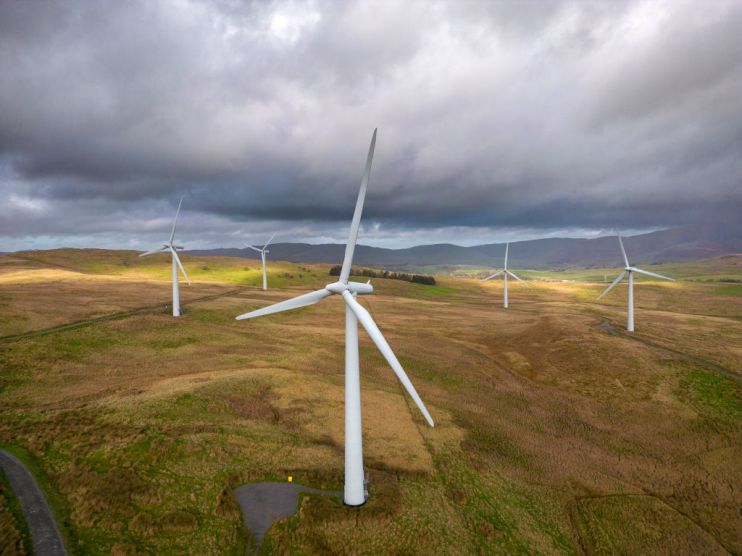Sunak’s green tweaks were mild – but his inconsistent net zero approach risks permanently alienating business

Prime Minister Rishi Sunak has confirmed plans to water down the government’s green energy pledges.
In a bid to draw dividing lines between his party and Labour, he is looking to pivot the party towards what he sees as a “proportionate” approach to net zero that does not put cost pressures on consumers.
He wants to take a more “pragmatic” approach to net zero that eases the burden on working people.
This will supposedly contrast with Labour’s embrace of more radical climate targets, enabling Sunak to paint Sir Keir Starmer as a risky proposition for Downing Street in an attempt to reverse the Tories’ hefty deficit in the polls.
Sunak says he is not abandoning the government’s net zero goals, and is instead trying to position himself as being in a middle ground between climate sceptics and eco zealots.
For this reason, the actual proposals for softening green energy pledges are fairly moderate.
The government has altered pledges to phase out new sales of petrol and diesel cars by the end of the decade, extending the transition date to 2035.
It has further delayed the oil and gas boiler ban too, ditching the 2035 date while reducing its target from 100 per cent of households to just 80 per cent.
However, Sunak has also expanded the allowance in the Boiler Upgrade Scheme from £6,000 to £7,500, giving more support to people installing heat pumps.
He has also unveiled proposals to fast-track planning for new energy projects so they can connect to the grid more easily – a big boost for renewables.
Yet, despite these relatively moderate adaptations, Sunak’s presentation of his policies appears to be alienating investors, which risks making the UK’s already unattractive investment climate even more unstable.
Lisa Brankin, the chair of Ford UK, said the company needed “three things from the UK government: ambition, commitment and consistency” – and after today, the government now risked undermining all three.
Chris Norbury, chief executive of Big Six supplier Eon UK, warned the government’s decision was “a misstep on many levels”
“From a business perspective, companies wanting to invest in the UK need long term certainty to create the jobs and economic prosperity the country needs,” he said.
These criticisms matter in the context of Sunak’s consistently inconsistent approach to net zero.
Last year during the leadership election, he spoke out against onshore wind and solar farm installations, preferring offshore turbines and rooftop panel installations.
Both of these positions have since been reversed.
But that did not stop the latest auction round for offshore wind being a massive flop – a process that was further undermined by insufficient government funding.
As for domestic oil and gas, Sunak has sought to present himself as a champion of the industry – spending political capital issuing 100 new licences this summer.
Yet he has additionally burdened the North Sea industry with high taxes that has seen companies withdraw from projects
There are legitimate debates over the UK’s approach to net zero, such as the balance between changing consumer behaviour and new technologies, the stringency of intermediate emissions targets, and realistic discussions about the readiness of industries to evolve and adapt.
Sunak also has fair concerns around losing the consent of voters by overly-demanding requirements for lifestyle changes, and that other countries need to contribute more to the collective effort to cut carbon emissions such as India and China.
However, with businesses being told insistently by Downing Street to pivot to green manufacturing – at huge expense – they risk being left in the lurch by constant government flip-flopping.
With the Sunak looking to create dividing lines between itself and Labour ahead of the next election, it must hope one of them does not evolve around which party has been guilty of scaring away investment.